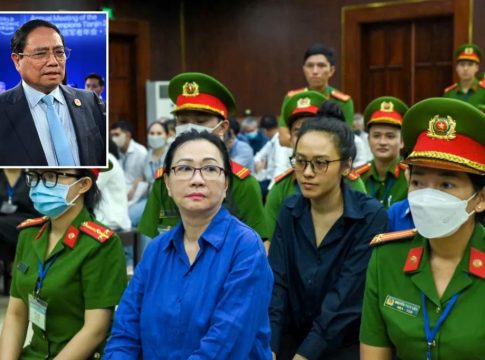Vietnam Abolishes Death Penalty for Eight Crimes Amid Major Legal Reforms
Legal Amendments Could Alter Fate of Real Estate Tycoon
In a significant legal shift, Vietnam has abolished the death penalty for eight specific crimes as part of sweeping legal reforms aimed at modernizing the country’s judicial system. This change may potentially spare the life of prominent real estate executive Truong My Lan, who is currently facing execution for her role in a major financial fraud scandal.
The Vietnamese National Assembly voted to end capital punishment for offenses including attempted government overthrow, damaging state infrastructure, falsifying medicine, espionage, drug trafficking, embezzlement, bribery, and engaging in warfare. The reforms were officially adopted on Wednesday, marking a pivotal moment in the nation’s legal landscape.
Impact on Truong My Lan’s Case
Truong My Lan, 67, the chairwoman of the Van Thinh Phat real estate group, was previously sentenced to death for her involvement in a financial fraud scheme that collectively defrauded investors of approximately $12.5 billion, a staggering sum that represents nearly 3% of Vietnam’s GDP for 2022. With the new legal provisions, her attorney, Phan Minh Hoang, confirmed that she is now eligible for a reduction of her death sentence, indicating a pathway to life imprisonment instead.
“We are still awaiting the official implementation guidance for the law amendment,” Hoang stated, underscoring the ongoing nature of legal processes in such high-profile cases.
Broader Implications for Vietnamese Law
The revisions also stipulate that individuals already sentenced to death for the now-abrogated crimes and not yet executed by July 1 will automatically face life imprisonment, pending confirmation from Vietnam’s highest court. As a result, the maximum penalty for fraud and similar crimes will now be life without parole.
This legal evolution could have wide-ranging implications for other ongoing legal proceedings. For instance, the recent trial of Nguyen Van Hau, chairman of Phuc Son Group, who is accused of paying over $5 million in bribes for lucrative infrastructure contracts, could be significantly affected by these reforms.
Remaining Crimes on Vietnam’s Death Penalty List
Post-reforms, Vietnam retains the death penalty for ten crimes classified as particularly heinous or threatening to public safety, including murder, sexual abuse of children, treason, and acts of terrorism. This nuanced approach reflects a growing acknowledgment of human rights concerns while maintaining strict accountability for severe criminal conduct.
As Vietnam navigates these legal changes, the country’s commitment to justice and the protection of its citizens continues to evolve.
Further developments on the implementation of this reform and its repercussions on current legal proceedings are awaited as lawyers and lawmakers move forward.

Focuses on crime, public safety, and regional events.
Bio: Marcus is a community-based journalist passionate about reporting impactful stories that matter most to readers.

